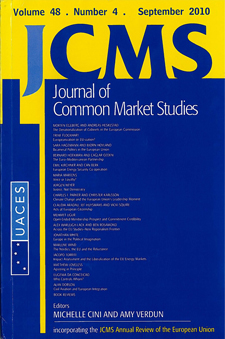
How does Institutional Setting Affect the Impact of EU Structural Funds on Economic Cohesion? New Evidence from Central and Eastern Europe
Structural Funds are the main instrument of the EU Cohesion Policy. Their effective use is subject to an ongoing debate in political and scientific circles. European fiscal assistance under this heading should promote economic and social cohesion in the member states of the European Union. Recently the domestic institutional capacity to absorb, to distribute and to invest Structural Funds effectively has become a crucial determinant of the cohesion process and has attracted attention of the scientific community. The aim of this study is to shed light on the effectiveness of Structural Funds in the countries of the first Central and Eastern European enlargement round in 2004. Using regional data for these countries we have a look on the impact of several institutional governance variables on the effectiveness of Structural Funds. In the interpretation of results reference is made to regional economics. Results of the empirical analysis indicate an influence of certain institutional variables on the effectiveness of Structural Funds in the new member states.




